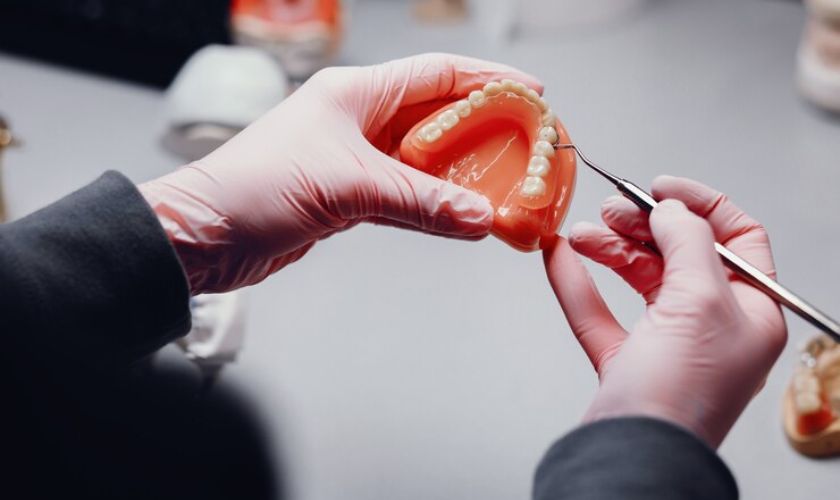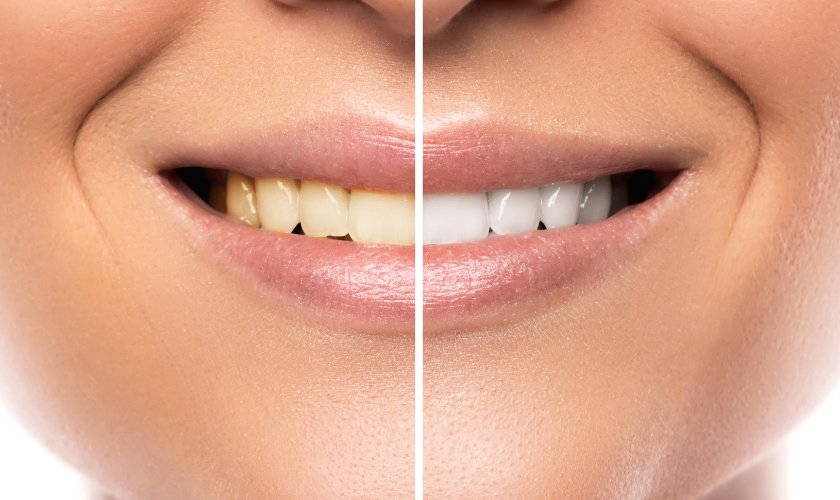
Dental crowns are like little superheroes in the world of oral health. These custom-made caps can restore a damaged or decayed tooth, giving you back both the functionality and dazzling aesthetics of a healthy smile. But just like any superhero, proper care for your dental crowns is essential to ensure it stays strong and shining for years to come.
Whether you’re a seasoned crown veteran or just got your first one placed, this guide is here to equip you with the knowledge you need to keep your crowns in tip-top shape. From brushing basics to lifestyle habits, let’s delve into the secrets of long-lasting crowns.
Brushing and Flossing: Your Best Friends
This might sound like a no-brainer, but proper brushing and flossing is the cornerstone of excellent oral hygiene, and that goes double for dental crowns. Brushing twice a day for two minutes each time is key. Use a soft-bristled toothbrush and fluoride toothpaste to gently clean the surfaces of your crown, paying special attention to the gumline where plaque loves to hide.
Flossing daily is equally important. Flossing removes food particles and plaque from between your teeth and underneath the crown, preventing decay and gum disease. There are different flossing tools available, so find one that works best for you, whether it’s traditional floss, a floss threader, or a water flosser.
Be Gentle: Choose Soft Foods Over Hard
Dental crowns are tough, but they’re not invincible. Chewing on hard candies, ice cubes, or nuts can chip or crack your crown, and nobody wants a dental emergency. Opt for softer foods instead, and if you do crave something crunchy, enjoy it in moderation and avoid using your crowned tooth for the initial bite.
Sticky Situations: Steer Clear of Sticky Candies
Sticky candies like caramels and gummies are another enemy of dental crowns. The sticky residue can pull on the crown, potentially causing it to loosen or even dislodge. It’s best to avoid these sugary treats altogether, or at least enjoy them sparingly.
Nighttime Grinding? Get Protected
When you wake up do you feel pain in your jaw? You might be grinding your teeth at night. Teeth grinding, also known as bruxism, can put a lot of stress on your crowns. If you find that you have grinded your teeth, talk to your dentist about getting a mouthguard. This will protect your crowns from the excessive pressure and wear and tear caused by grinding.
Regular Dental Checkups: Early Detection is Key
Just like with your natural teeth, scheduling regular dental checkups (at least once or twice a year) is crucial for maintaining the health of your crowns. Your dentist can check for any signs of wear, damage, or decay around the crown and the underlying tooth. Early detection is key to preventing any major problems down the line.
Bonus Tip: Ditch the Bad Habits
Certain habits can unknowingly damage your dental crowns. Using your teeth to open bottles, packages, or crack nuts is a big no-no. Chewing on pens or fingernails can also put unnecessary stress on your crowns. Be mindful of these habits and find healthier alternatives.
Living With Crowns: A Piece of Cake
By following these simple tips, you can ensure your crowns stay strong and beautiful for many years to come. Maintaining good oral hygiene, avoiding certain foods and habits, and scheduling regular dental visits are all part of the winning formula. Remember, a healthy smile is a happy smile, and with a little TLC, your dental crowns can be a part of that winning smile for a long time.
Do you have any questions about caring for your dental crowns? Share them in the comments below.
New Patients & Emergency Appointments Welcome!





